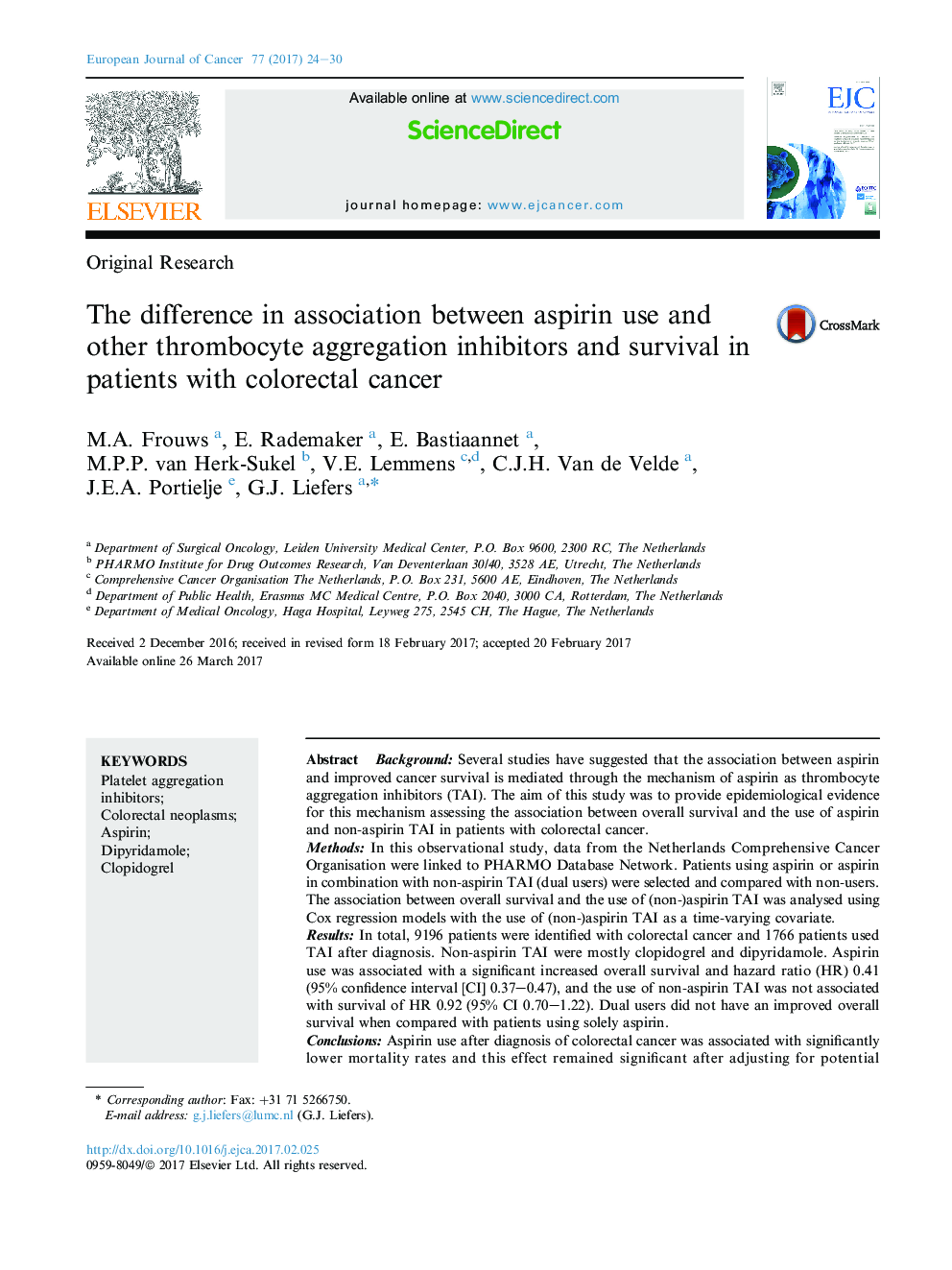| Article ID | Journal | Published Year | Pages | File Type |
|---|---|---|---|---|
| 5526623 | European Journal of Cancer | 2017 | 7 Pages |
â¢Platelet aggregation inhibitors do not result in additional survival benefits.â¢Aspirin use is associated with an overall survival benefit in colorectal cancer.â¢A mechanism unique of aspirin may be responsible for the observed survival benefit.
BackgroundSeveral studies have suggested that the association between aspirin and improved cancer survival is mediated through the mechanism of aspirin as thrombocyte aggregation inhibitors (TAI). The aim of this study was to provide epidemiological evidence for this mechanism assessing the association between overall survival and the use of aspirin and non-aspirin TAI in patients with colorectal cancer.MethodsIn this observational study, data from the Netherlands Comprehensive Cancer Organisation were linked to PHARMO Database Network. Patients using aspirin or aspirin in combination with non-aspirin TAI (dual users) were selected and compared with non-users. The association between overall survival and the use of (non-)aspirin TAI was analysed using Cox regression models with the use of (non-)aspirin TAI as a time-varying covariate.ResultsIn total, 9196 patients were identified with colorectal cancer and 1766 patients used TAI after diagnosis. Non-aspirin TAI were mostly clopidogrel and dipyridamole. Aspirin use was associated with a significant increased overall survival and hazard ratio (HR) 0.41 (95% confidence interval [CI] 0.37-0.47), and the use of non-aspirin TAI was not associated with survival of HR 0.92 (95% CIÂ 0.70-1.22). Dual users did not have an improved overall survival when compared with patients using solely aspirin.ConclusionsAspirin use after diagnosis of colorectal cancer was associated with significantly lower mortality rates and this effect remained significant after adjusting for potential confounders. No additional survival benefit was observed in patients using both aspirin and another TAI.
